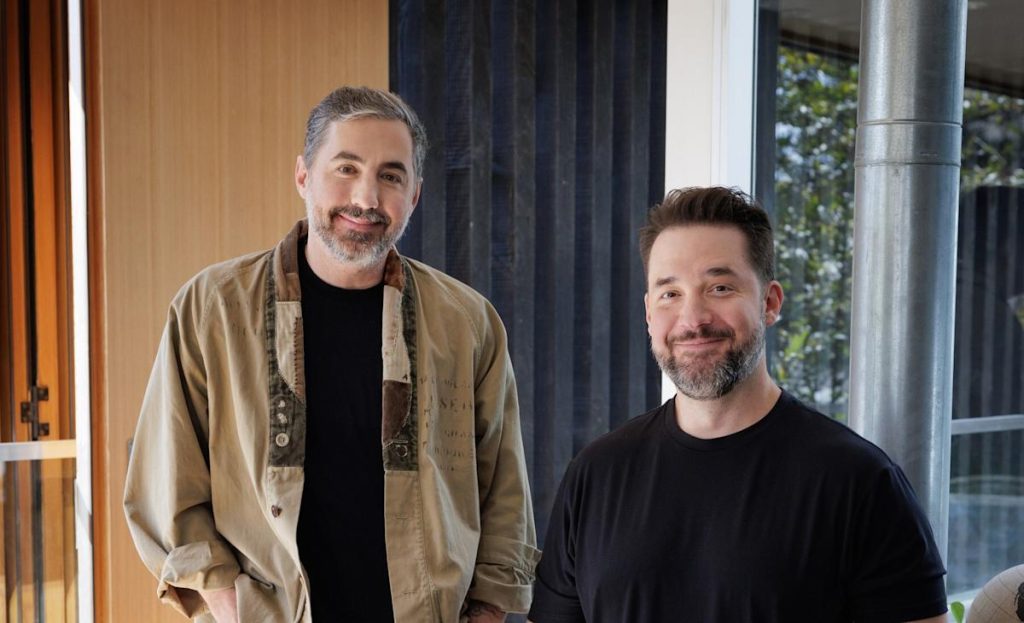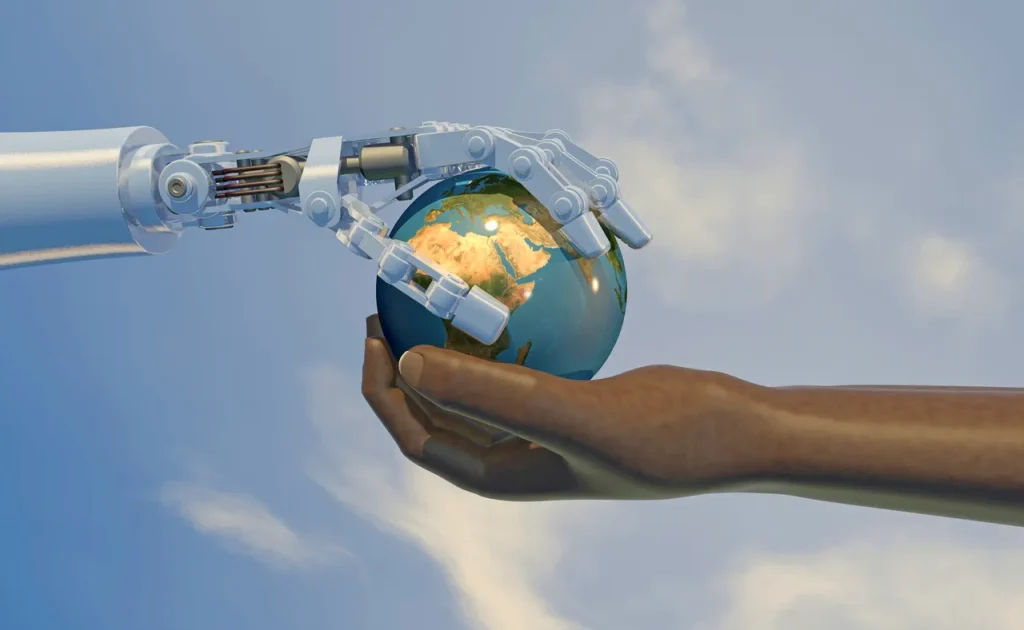Table of Contents
The internet is undergoing a massive transformation, with AI-generated content flooding social media and drowning out genuine human voices. Bots, clickbait, and algorithm-driven manipulation now overrun platforms that once thrived on authenticity.
Enter Digg’s reboot, a bold move by founder Kevin Rose and Reddit co-founder Alexis Ohanian to reclaim the digital space for real people. Their goal is to rebuild Digg into a human-first platform that brings back the community spirit of the early web, where content discovery and honest conversation were the rules.
By integrating advanced verification tools, new moderation models, and ethical tech practices, Digg’s new direction promises to offer a refreshing alternative to the AI-saturated status quo. It’s not just a return to the past. It’s a future-focused platform designed with integrity and user empowerment in mind.
A New Vision for an Old Favorite
In an era when artificial intelligence is transforming the digital landscape, Digg is making a comeback not as a nostalgic revival but as a reimagined platform for genuine users. The founder of Digg, Kevin Rose, and Reddit co-founder Alexis Ohanian, are spearheading the platform’s reboot. Their shared mission is to rebuild a human-centered internet experience amid the growing flood of AI-generated content.
Why Digg Is Making a Comeback
The Rise and Fall of Web 2.0 Giants
Digg was once a dominant player in Web 2.0, valued at $175 million in 2008. The platform thrived as a community-driven news aggregator but eventually faded into the background with the rise of competitors like Reddit, Facebook, and Twitter.
Now, in an era where AI-driven content threatens to drown out authentic human voices, Digg’s founders see a fresh opportunity. They’re positioning the platform to revive the spirit of early internet communities, where user-generated content and discovery took precedence over algorithms and automation.
The Problem With Today’s Social Media
Ohanian and Rose are clear, modern platforms have become breeding grounds for misinformation, hate speech, and manipulated content. Social media algorithms often reward extreme views and sensationalism while genuine human interaction is diminished.
What the New Digg Stands For
Serving Real People, Not Bots
The founders are committed to creating a social platform that fosters genuine human engagement. They aim to create a digital space where people, not bots or AI-generated accounts, drive the content, conversations, and culture.
Rose and Ohanian refer to the rise of the “dead internet theory,” which suggests a large portion of the content online is no longer made by humans. While this was once a fringe idea, they believe it’s now disturbingly close to reality thanks to generative AI.
Prioritizing Authentic Human Input
According to Ohanian, much of what users consume on today’s social platforms is influenced or generated by AI, either fully automated or semi-curated with humans in the loop. This shift creates a misleading sense of community and interaction.
Tackling AI and Bots With Smarter Tech
Identity Verification Through Innovation
To preserve authentic interactions, Digg’s reboot will explore advanced technologies, such as zero-knowledge proofs (zk proofs). These cryptographic tools can verify ownership or identity without exposing personal data, offering a new method to confirm someone is human before they engage on the platform.
How This Might Work:
- Verified Entry: Community admins could toggle verification options to control who participates.
- Tiered Access: Users may need to prove their authenticity through email, device usage, or behavior before gaining full platform privileges.
- Behavioral Triggers: Suspicious actions (like rapid posting or use of VPNs) could prompt extra verification steps.
Example Tiers for User Access
- Anonymous Browsing – Read-only access for unverified users
- Light Interaction – Basic engagement for semi-verified users
- Full Participation – Full features unlocked for verified humans
Balancing AI Use With Human-Centric Goals

AI Moderation With a Human Touch
Despite concerns about AI, Rose and Ohanian are not opposed to AI. In fact, they see practical uses for it within Digg, particularly for moderation. AI can help de-escalate heated conversations, flag abusive behavior, and support community health. However, the key difference is that AI will be used in service of human experiences, not to replace or simulate them.
Empowering Community Contributors
Ending the Era of Unpaid Moderation
A cornerstone of Digg’s new approach is fair compensation for moderators and creators. Rose strongly believes that the unpaid labor of moderators, which supports multi-million-user communities, is no longer sustainable or ethical.
Community Builders Deserve a Stake
Platforms like Reddit have long benefited from the passion and effort of volunteers. Yet, incidents such as Reddit trademarking user-created communities like “WallStreetBets” reveal how creators often get sidelined in favor of corporate gain.
Digg’s Fairer Model Could Include:
- Revenue Sharing: Incentives for top contributors and moderators
- Recognition Systems: Badges or status levels to reward trust and impact
- Ownership Opportunities: Stakeholding models or shared governance
Resisting the AI-Flooded Future
Protecting Human Connection Online
With bots and AI-generated accounts infiltrating even the most niche communities, the founders aim for Digg to be a sanctuary for genuine human conversation. They cite recent experiments on Reddit where AI bots posed as users, influencing discussions undetected, proving how easy it is for machines to imitate people.
Ohanian emphasizes the importance of ensuring that users are aware they’re interacting with real people. Small signals, such as device ownership history or behavioral consistency, can help determine a user’s trustworthiness.
Enhancing Trust Without Excluding Users
While the platform may use verification to restrict or enable access, the goal isn’t to gatekeep. It’s to provide a cleaner, more trustworthy experience. If someone wants to remain anonymous or use a burner account, they still can, but they might face extra verification steps, such as:
- Phone number checks
- Small verification fees
- Delayed posting or limited access
This flexible but secure structure helps maintain a human-first environment without becoming overly restrictive.
Lessons From Reddit’s Past
Learning From Mistakes
Ohanian candidly discussed Reddit’s troubled history with harmful content and hate speech. He highlighted moments when the company delayed necessary policy changes until external pressure forced their hand, such as in the case of the controversial “r/WatchPeopleDie” subreddit. His decision to resign from Reddit’s board stemmed from a growing misalignment between the company’s values and his own. With Digg, he wants to start fresh with transparency, ethical design, and inclusive community management.
What Success Looks Like for the New Digg
Aligning Incentives Across the Board
Ohanian and Rose agree that a successful platform must align incentives for all parties: users, creators, moderators, and investors. Rather than extract value from communities, the platform will focus on sharing that value with those who help build it.
They hope this will not only drive user satisfaction but also create a more sustainable and ethical business model.
Future-Forward and Value-Aligned
Ohanian emphasized his desire to build “values-aligned” businesses through his venture capital firm, Seven Seven Six. He sees the Digg reboot as part of this mission, leveraging technology, ethics, and community to offer something modern platforms have lost.
Key Features Digg May Offer in the Reboot

Here’s a quick look at what the future Digg experience might include:
- Human Verification Tools: From zk proofs to behavior tracking
- Tiered Engagement Levels: Custom interaction access based on trust
- Paid Moderation Programs: Compensation for Active Community Builders
- AI-Assisted Moderation: Support for keeping communities healthy
- Transparent Monetization Models: Revenue sharing and recognition
FAQs
What is the primary goal of the new Digg platform?
The rebooted Digg aims to prioritize real human interaction, community building, and ethical moderation in an AI-dominated digital space.
Who is behind the Digg relaunch?
Digg’s founder, Kevin Rose, has teamed up with Reddit co-founder Alexis Ohanian to lead the platform’s human-focused reboot.
How will Digg handle bots and AI-generated content?
Digg plans to utilize tools such as zero-knowledge proofs and behavioral tracking to verify human users and prevent bot manipulation.
Will moderators and creators get paid on the new Digg?
Yes, the founders intend to implement revenue-sharing and compensation models for community moderators and high-value content creators.
Is Digg against the use of AI entirely?
No, Digg is not anti-AI. The platform will utilize AI for support roles, such as content moderation, but not for generating or controlling conversations.
Conclusion
Digg’s reboot represents a timely shift toward restoring authenticity and human connection in the digital world. By combining ethical technology, fair compensation, and verified participation, the platform sets itself apart in a crowded, AI-saturated landscape. Rose and Ohanian’s vision isn’t about nostalgia. It’s about building a smarter, safer, and more human web experience. If successful, Digg could become a new standard for social platforms that want to empower people, not algorithms. It’s a vision rooted in trust, transparency, and real community.


